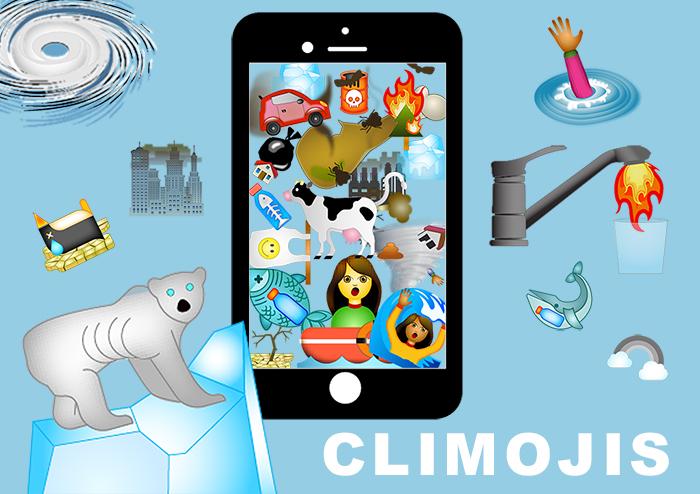NYU Professors and Students Mobilize Climate Change With ‘Climoji’
A collage of “climojis”, or climate change awareness themed emojis.
January 30, 2018
How often do students text their friends about climate change? For Tisch Professor Marina Zurkow, alumna Viniyata Pany and their team of students, the answer is not enough. And that’s where Climoji comes in.
In December the group developed Climoji, an online sticker package that uses climate change-themed emojis, such as a colorless rainbow and a hungry polar bear clinging to a small chunk of ice, to help bring global warming to the forefront of daily conversation.
Zurkow, Pany and the students designed the emojis in Adobe Illustrator before exporting them and ultimately building them into sticker packs that are compatible with both Android and iOS. With no current data to track users, it is unclear how many people have used the Climojis.
Professor Zurkow believes emojis could help reach a greater audience about climate change because of how people engage with each other in today’s increasingly digital world.
“While there is an intellectual consensus on the effects of climate change, there isn’t an emotional one,” Zurkow said. “Climoji are that bridge — a tool, a shared language for us to question, communicate and reflect on our personal actions and our responsibilities as part of a larger community.”
On the receiving end of the eco-tech product, target consumers have some concerns about Climoji.
CAS sophomore Nick Yao wonders if the emojis could become popular enough to have a noticeable influence.
“Although climate change emojis sound nice, the reality is most emojis aren’t even used,” Yao said.
On the other hand, CAS sophomore Everett Jiang worries the emojis might impact how people talk about climate change negatively by leading to trivialization of the issue.
“I do like the idea of spreading awareness, but my only concern is that if it becomes a popular emoji pack, it could lead to the desensitization of people due to constant exposure,” Jiang said.
While there is significant support for a more open dialogue on climate change, some students remain skeptical of the potential of a concept like Climoji to make a meaningful impact.
Only time will tell if Climoji will be widely accepted on the NYU campus and beyond. Nonetheless, if people begin to talk about climate change with the regularity that they use emojis, the situation might change from 🙁 to 🙂
Email Evan Vehslage at [email protected].












































































































































